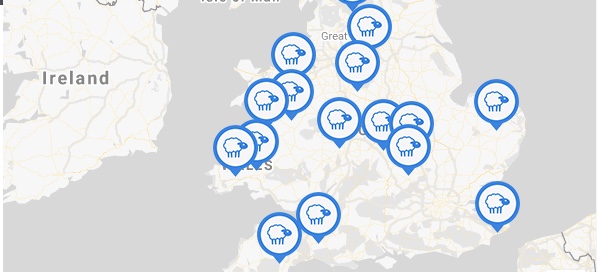Farmers are at risk of costly growth rate losses in their sheep by making reactive decisions when it comes to treating their stock against worms and fluke, a recent survey has shown.
The research conducted on the twitter account @sheep_farmers, which has over 7,200 followers, found many sheep farmers are still basing their worming decisions on signs rather than using monitoring solutions, such as Faecal Egg Count (FEC) tests or growth rates.
Half of the 234 respondents said they did not use Faecal Egg Count tests in their flock. Instead, most wormed their sheep based on ‘seeing dirty back ends; 34%’ and ‘time of the year; 29%’.
Resistance was a big concern, with over half (54%) suspecting some level of resistance on their farm, however, 70% had never tested for resistance. Almost half of resistance reported in the survey was to white wormers (43%) and 21% to Ivermectin.
Zoetis vet Dr Dave Armstrong says that with no two years being the same when it comes to the parasite challenge, basing worming decisions on the time of year or waiting until symptoms appear can be costly.
“Take 2018 as an example, due to the long dry summer, this was perceived as a low-risk year for worms. However, the Parasite Watch service run by Zoetis demonstrated that in fact there were many very high peaks of challenge. This potentially resulted from there not being enough time for immunity development in the lambs due to a lack of trickle exposure. Farmers waiting to see signs rather than using faecal egg count tests would have lost valuable growth in these lambs,” he said.
Parasite watch
Parasite Watch is a service to help sheep farmers, SQPs and vets assess the parasite risk in their area. It is the only service offering real-time information on faecal egg count tests from 24 farms across the country. In conjunction with 10 years of validated weather data, it gives an indication of the risk of high egg counts by showing the potential for larval development on pasture.
The farms involved in the scheme have faecal samples taken every two weeks to detect major stomach worms and Nematodirus. Fluke is tested regularly during risk periods using copro-antigen testing. This picks up immature fluke from greater than six weeks of age, giving farmers, vets and SQPs advanced warning of potential issues. Flies are also monitored using fly traps.
What’s new
It is the fourth consecutive year Zoetis is running the scheme. More farms are involved this year increasing from 18 to 24. In addition, treatment and management data for the farms will also be available allowing better decision making.
Dr Armstrong says using a free scheme like Parasite Watch to keep abreast with parasite risks in the local area as well as conducting regular faecal egg counts can help save farmers money.
He said: “With the annual cost of stomach worms to the British Sheep industry estimated to be about £84m1, sheep farmers need to be looking at ways to reduce losses on farm due to worms, but in a responsible way. Monitoring services like Parasite Watch can alert you to risks in your area. It may prompt you to conduct a faecal egg count test to see whether there are any worm issues before symptoms appear.”
Effective worm control can give up to 47% improvement in growth rate and up to 21% extra wool growth2. Good control can give up to 4.7kg extra live weight during the grazing season3.
Tom Carlisle, Coxons Farm, Skipton, is one of the sentinel farms involved in Parasite Watch this year. He has been monitoring worms using faecal egg counts for the past couple of years and has managed to reduce the amount of wormer used.
He said: “As a result of taking faecal egg counts, we’ve not been dosing unnecessarily and have been dosing correctly. Having the information is allowing us to make the best possible decisions to aid growth, welfare and nutrition of the lambs. Last year, the challenge was a lot earlier than we would have expected. It has opened my eyes to the fact worms can strike earlier than you think.”
Farmers, vets and SQP’s can access Parasite Watch on Facebook and Twitter, as well as the website www.parasitewatch.co.uk and sign up to tailored emails to help monitor and manage worms effectively.




